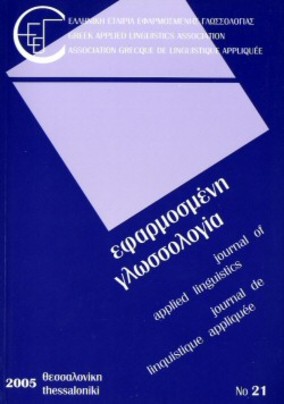Νέες κατευθύνσεις και προβλήματα στη γλώσσα των Μ.Μ.Ε.
Part of : Εφαρμοσμένη γλωσσολογία ; No.17, 2001, pages 69-78
Issue:
Pages:
69-78
Author:
Abstract:
The language used in the press and the mass media is facing more than ever a serious problem due to the fact that it never had acquired its own specialised vocabulary. In the absence of a closed specific terminology, the language of journalism is open, without any restrictive borders, to the outsiders of the profession. Recently, there has been a visible change in the news, not only in the use of words but also in syntax. A much looser vocabulary with some shocking words is permitted. Another symptom of the change, visible in printed journalism, is the elimination of strict punctuation rules. There is an increase in the use of quotation marks in the texts suggesting the double meaning or putting emfasis on the words. The syntax of the text, not only in the newspapers and magazines but in radio and television as well has become inordinate. Probably, the language used in journalism, being the everyday language, reflects better than anything else the changes of the world. Particularly, in the 90’ s, after the collapse of the Eastern Bloc, globalisation and the use of the Internet, a new attitude about lifestyle and design has developed and was first expressed in the media and has made major inroads in the journalistic vocabulary.
Subject (LC):
Notes:
Περιέχει παράρτημα, σημειώσεις και βιβλιογραφία




